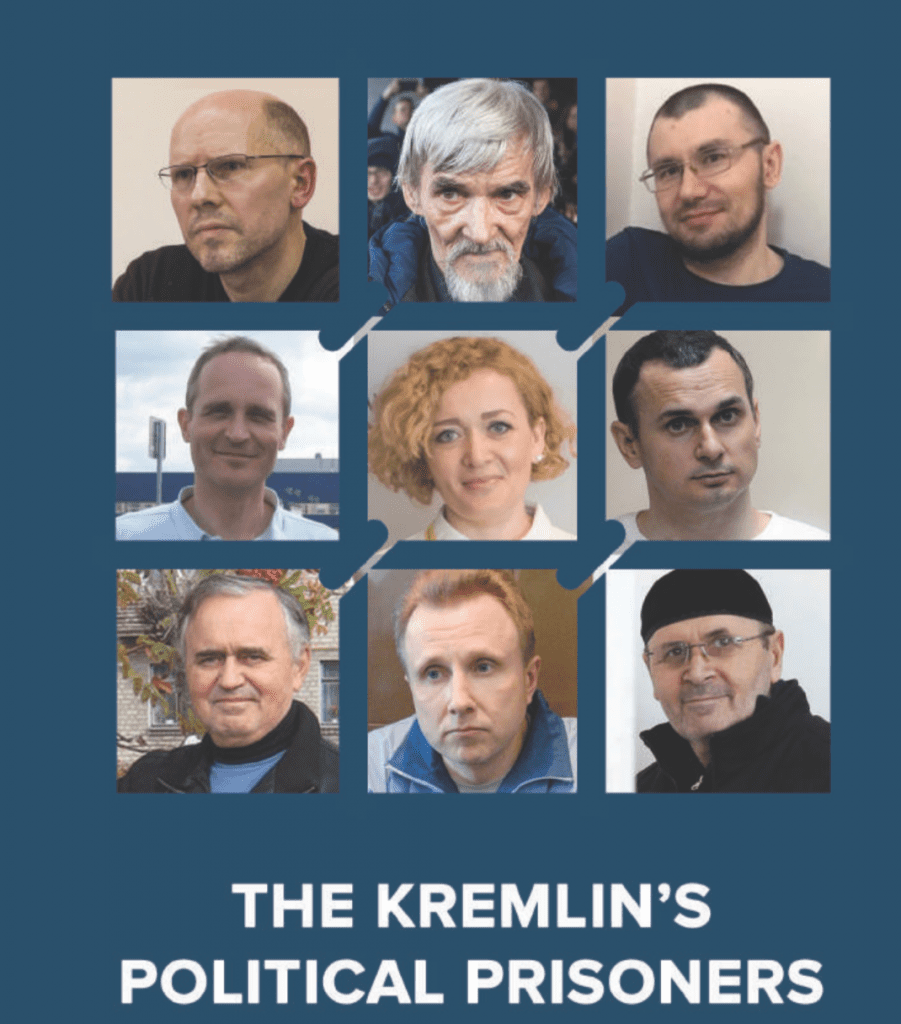Washington Post Editorial Board Discusses Kremlin’s Political Prisoners Report
May 7, 2019
The Washington Post’s editorial board discusses the just-released report on “The Kremlin’s Political Prisoners: Advancing A Political Agenda By Crushing Dissent” – a report that features Russia’s longest-serving political prisoner Alexey Pichugin, among more than 230 prisoners currently held in the country’s prisons.
The editors see the growing number of political prisoners in Russia as an indication that constitutional “guarantees mean nothing to Mr. Putin and his cohorts.”
Does Russia’s constitution mean nothing to Putin? By the looks of it, yes.
By Editorial Board
May 2, 2019
ON NOV. 5, 2017, two students, Yan Sidorov, 18, and Vladislav Mordasov, 21, appeared on the public square in front of the regional government building in Rostov-on-Don, in southern Russia. They brought two placards, 30 leaflets and a megaphone for a protest against local government. Russian authorities were on edge; protests were held all around Russia that day at the behest of an outlawed nationalist who called for toppling President Vladimir Putin. Hundreds were detained nationwide, and so were the two students in Rostov. They were charged with attempting to organize a riot. They have been in jail ever since.
The number of political prisoners — people incarcerated just for expressing views or beliefs, or for political motivations of the jailer — has risen sharply in Russia. According to authoritative lists maintained by the MemorialHuman Rights Center, the number of political prisoners in Russia has jumped from 46 in 2015 to 278 today. These cases are a strong indicator of how far Mr. Putin has strayed from the ideals of democracy and rule of law enshrined in Russia’s 1993 constitution.
According to a report published Monday, the young men who stood in the Rostov square have been treated badly, with little regard to due process. Mr. Mordasov was hit on the head, stomach, kidneys and lower abdomen, and investigators twice put a gas mask on his head as if to suffocate him. The prisons hold many others, including Oleg Sentsov, a Ukrainian film director and Putin critic; Anastasia Shevchenko, an activist with the Open Russia movement founded by exiled tycoon Mikhail Khodorkovsky; Oyub Titiev, the representative of Memorial’s center in Grozny, Chechnya; Dennis Christensen, a Jehovah’s Witness; and Emir-Usein Kuku, a Crimean Tatar, a Muslim group critical of Russia’s seizure of Crimea. The persecution of Jehovah’s Witness believers, who are not expressing political views but are prisoners of conscience, has been particularly intense and outrageous. As of Wednesday, there were 186 Jehovah’s Witnesses facing criminal charges in Russia and Crimea, with 24 in pretrial detention and 25 under house arrest.
The Jehovah’s Witnesses are charged with organizing, participating in or financing the activity of an “extremist” organization. The new report, funded by exiled tycoon Leonid Nevzlin and written by public-interest law firm Perseus Strategies with support from Memorial, examines how the authorities have warped the rule of law. For example, the criminal code includes an overly broad and vague provision prohibiting calls for “extremist” activities that the authorities have used to prosecute all kinds of people, even a religious group that espouses nonviolence such as the Jehovah’s Witnesses.
Russia’s constitution guarantees basic rights that were violated in the Soviet Union, including freedom of expression, religious belief and assembly. Article 31 is relevant to the students in Rostov: “Citizens of the Russian Federation shall have the right to assemble peacefully, without weapons, hold rallies, meetings and demonstrations, marches and pickets.” The increasing number of political prisoners is a sign that such guarantees mean nothing to Mr. Putin and his cohorts.
Related Content
-
The Kremlin's Political Prisoners Report is Released

On Monday in Washington, D.C., a coalition of human rights groups released “The Kremlin’s Political Prisoners” report, which features Alexey […]
-
Bloomberg on The Kremlin’s Political Prisoners: Putin May Project Strength and Daring, but Remains Afraid of Dissent

May 2, 2019 In a new piece for Bloomberg, Eli Lake argues that the report released this week by the […]
-
RFE/RL on The Kremlin’s Political Prisoners: “New Report Documents ‘Ever-Increasing Array of Laws’ Used in Russian Political Repression

May 6, 2019 Referencing Alexey Pichugin, Russia’s longest-serving political prisoner as one of the political prisoners highlighted, RFE/RL discusses the […]
-
“Standing Against Putin’s Tyranny:” Wall Street Journal Op-Ed Features Pichugin

April 28, 2019 Standing Against Putin’s Tyranny The ranks of political prisoners grew fivefold in four years. By Irwin Cotler […]

